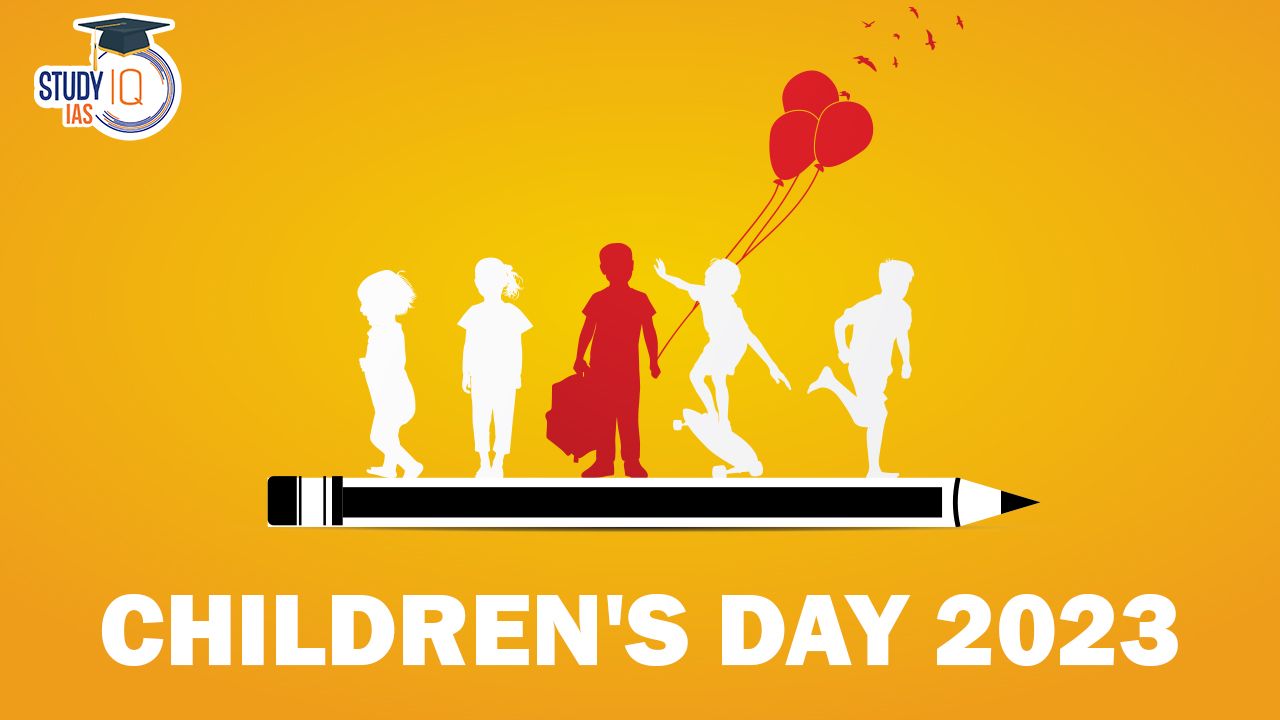Table of Contents
Children’s Day in India is observed annually on November 14. This date was specifically chosen to coincide with the birthday of India’s inaugural prime minister, Pandit Jawaharlal Nehru, a leader renowned for his deep affection for children and his unwavering advocacy for their rights and education. Pandit Nehru firmly believed in the pivotal role of children in shaping the nation’s future, expressing that they are akin to buds in a garden and should be nurtured with care and love.
The celebration of Children’s Day, also known as Bal Diwas, on November 14 serves as a heartfelt tribute to Pandit Nehru. Beyond a commemoration of his legacy, the day is dedicated to raising awareness about the rights and welfare of children. It underscores the importance of nurturing and safeguarding the younger generation, recognizing them as the future citizens who will play a crucial role in shaping the destiny of the nation.
We’re now on WhatsApp. Click to Join
Children’s Day 2023
Children’s Day in India holds a special place in the calendar, marked annually on November 14th. This significant date is a tribute to the birthday of India’s inaugural prime minister, Pandit Jawaharlal Nehru, a leader who held a profound love for children and recognized their pivotal role in shaping the nation’s destiny. Bal Diwas, as it is known, is a dedicated occasion to promote awareness about the rights and well-being of children.
This day not only honors the enduring legacy of Pandit Jawaharlal Nehru but also advocates for the welfare of the nation’s future leaders. By celebrating the purity and potential of children, Children’s Day serves as a poignant reminder to invest in their rights and education, ensuring a brighter and more promising tomorrow for India.
Children’s Day 2023 Theme
The theme for this year’s Children’s Day, ‘Ensuring every child, every right,’ emphasizes the dedication to safeguarding the rights of every child globally. It urges a joint endeavor from individuals, communities, and governments to establish a supportive environment conducive to the physical, mental, and emotional growth of the younger generation.
History of Children’s Day
Children’s Day in India has a rich history intricately linked to the influential role of Jawaharlal Nehru. Born on November 14, 1889, Nehru’s commitment to children’s well-being and education laid the foundation for this special day.
The journey of Children’s Day traces back to November 5, 1948, initially observed as “Flower Day.” However, it wasn’t until 1954 that the day officially transitioned into Children’s Day, aligning with Nehru’s birthday. This shift marked a symbolic acknowledgment of Nehru’s dedication to children and their rights.
Following Nehru’s passing in 1964, the significance of Children’s Day intensified. In the same year, the inaugural official celebration of Children’s Day took place, serving as a heartfelt tribute to Nehru’s tireless advocacy for children’s rights and education. This event marked the commencement of an annual tradition that continues to resonate across the country.
Children’s Day, commemorated on November 14th, stands as a testament to Nehru’s belief that children are the architects of the nation’s future. The history of this day reflects a commitment to fostering an environment where every child is granted the opportunity for a bright and prosperous future, in alignment with Nehru’s visionary outlook for India.
Children’s Day 2023 Significance
Children’s Day is celebrated in many countries around the world to honor and acknowledge the importance of children in society. The significance of Children’s Day includes:
- Childhood Celebration: Children’s Day is a day to celebrate the joys and innocence of childhood. It provides an opportunity for children to enjoy special activities, events, and festivities.
- Child Rights and Welfare: The day is often used as a platform to raise awareness about the rights and welfare of children. It emphasizes the importance of ensuring that every child has the right to education, healthcare, protection from exploitation, and a nurturing environment.
- Tribute to Advocates for Children: In many countries, Children’s Day is associated with the birthday of a significant figure who played a crucial role in promoting children’s rights and welfare. For example, in India, it is celebrated on November 14th in honor of Jawaharlal Nehru, who was a strong advocate for children.
- Educational Initiatives: Many educational institutions take the opportunity to organize special programs and events on Children’s Day. These activities aim to inspire and motivate children, fostering a love for learning and creativity.
- Promoting Equality: Children’s Day underscores the importance of treating all children with equality and ensuring that every child has the opportunity to reach their full potential, regardless of their background or circumstances.
- Future of the Nation: Children are considered the future leaders of society. Children’s Day is a reminder that investing in the well-being and development of children is crucial for building a better and more prosperous future for the nation.
- Family Bonding: Families often come together on Children’s Day to spend quality time with their children. It’s a time for parents and caregivers to express their love and support for the younger members of the family.
Children’s Day in India UPSC
Children’s Day in India, celebrated annually on November 14, pays tribute to the first Prime Minister, Pandit Jawaharlal Nehru, emphasizing his love for children and advocacy for their rights. The theme for 2023, ‘Ensuring every child, every right,’ underscores global commitment. Its history dates to 1948, evolving into Children’s Day in 1954. Nehru’s passing in 1964 elevated its significance, marking an annual celebration. The day signifies childhood joy, advocates for child rights globally, and promotes educational initiatives. It symbolizes the future of the nation, fostering equality and family bonding, emphasizing investment in children’s well-being for a prosperous tomorrow.


 Places in News for UPSC 2025 for Prelims...
Places in News for UPSC 2025 for Prelims...
 List of Indian State Animals with their ...
List of Indian State Animals with their ...
 World Heritage Day 2025, Theme, Objectiv...
World Heritage Day 2025, Theme, Objectiv...





















